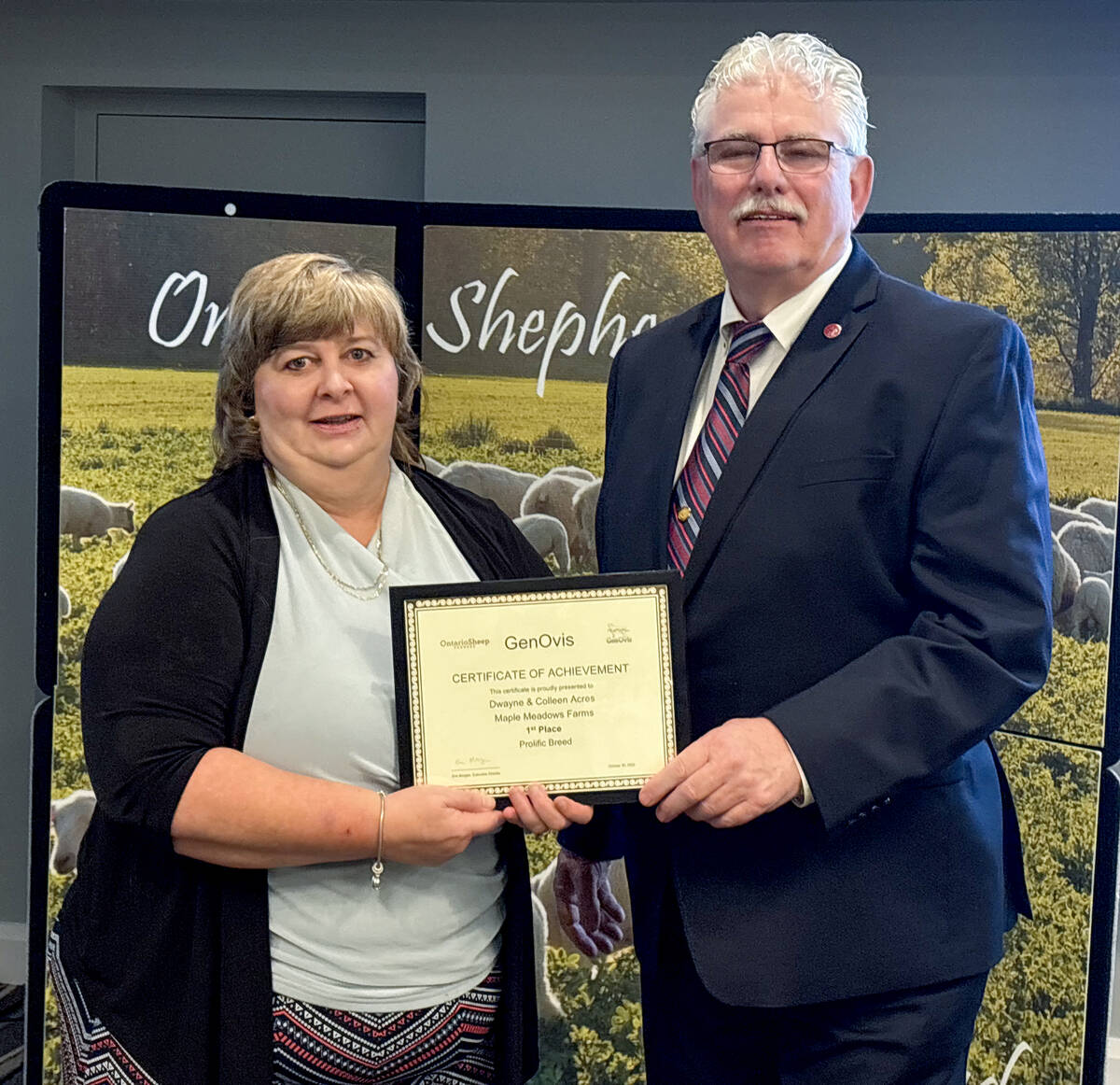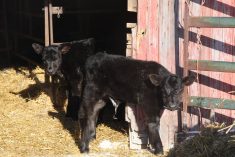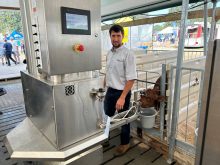Fecal consistency scoring (FCS) is a valuable tool that can be used to treat calves with diarrhea in a timely manner.
According to Dr. David Renaud, an assistant professor in the Department of Population Medicine at the University of Guelph and a consultant with ACER Consulting Inc., diarrhea remains one of the most commonly diagnosed illnesses in calves, and if not managed early, it can negatively affect calf health as the calf grows to maturity.
Studies have also shown that up to five per cent of calves that require treatment for diarrhea will die.
Read Also

GenOvis awards presented at Ontario Sheep Farmers’ annual meeting
Producers and youth were recognized for their contributions during the Ontario Sheep Farmers’ annual GenOvis and leadership awards.
Why it matters: Diarrhea, if left untreated, can be a deadly condition for calves.
FCS is a visual assessment of feces and scoring it on a scale of zero to three. Renaud says that proper identification of diarrhea — using fecal consistency scoring — can help to lower the short- and long-term consequences of the illness.
Feces with a score of zero are firm, but not hard, and the original form of the fecal matter is only slightly distorted when dropping to the floor and settling.
Scores of one are given to feces that are a little softer and pastier; it does not hold original form and spreads slightly.
Feces with a score of two is runny and spreads readily; it does not form a pile on the ground.
Finally, a fecal score of three is given to fecal matter that is watery — feces with liquid consistency that “splatters.”
“Probably the best way to (understand it) is through visual pictures,” says Renaud.

FCS helps farmers decide when to intervene. Fecal scores of two or three have high water contents and therefore indicate the presence of diarrhea.
Once diarrhea is detected, Renaud suggests the use of non-steroidal anti-inflammatory drugs (NSAIDs).
“There’s good research to show that using NSAIDs can actually improve feed intake and improve recovery from the disease,” he says.
As well, fluid therapy through electrolytes is important with the ongoing loss of fluids at the time of an abnormal fecal score.
“Probably the most important thing to consider is providing fluid therapy right at the onset of the calf having that abnormal fecal consistency,” says Renaud. “The fluid loss is really contributing to the calf not doing well and becoming sicker as it progresses through the course of the diarrhea.”
FCS should be used in calves from birth to 14 days of age, when majority of diarrhea occurs.
The onset of diarrhea is more complex than just pathogen exposure and subsequent diseases, says Renaud.
“I think it’s the changes that happen at the level of the bacterial communities in the gastrointestinal tract that increase the probability of them getting diarrhea. They either have bacteria in their gut that makes it hard for calves, or their gut, to protect them from pathogens.”
Studies have shown that each case of diarrhea within calves can create a loss of $150. This includes the initial cost of treatment, but there is a loss in average daily gain.
“I think it’s about 110 grams per day reduction compared to calves that don’t have any diarrhea,” says Renaud.
As well, diarrhea can affect milk production later in life. Renaud says studies show a 350-kilogram reduction in a cow’s first lactation if she had diarrhea as a calf.
Although the concept of fecal scoring is not new, it hasn’t been used frequently.
“This fecal scoring has been around since 1977, when a paper published the first kind of fecal scoring guidelines. It’s been around for a long time, but I think very few people look at it in terms of looking at the severity and the impact,” says Renaud.
“I think (FCS) is something that can be easily incorporated into any farm. It’s getting the routine of just walking through pens and looking at each individual (calf’s) feces.”















